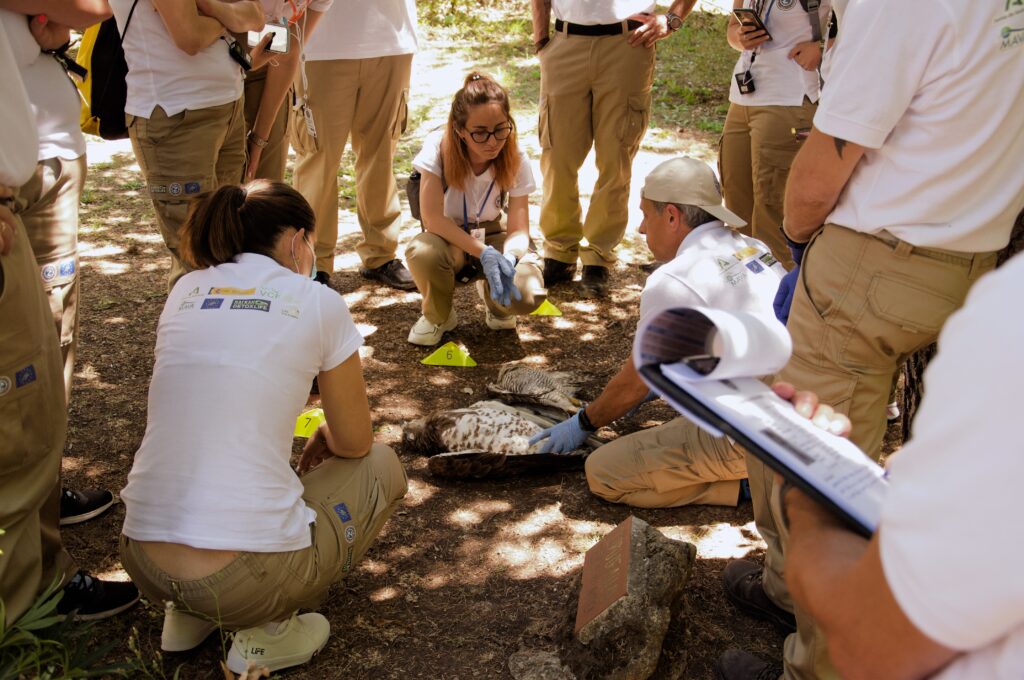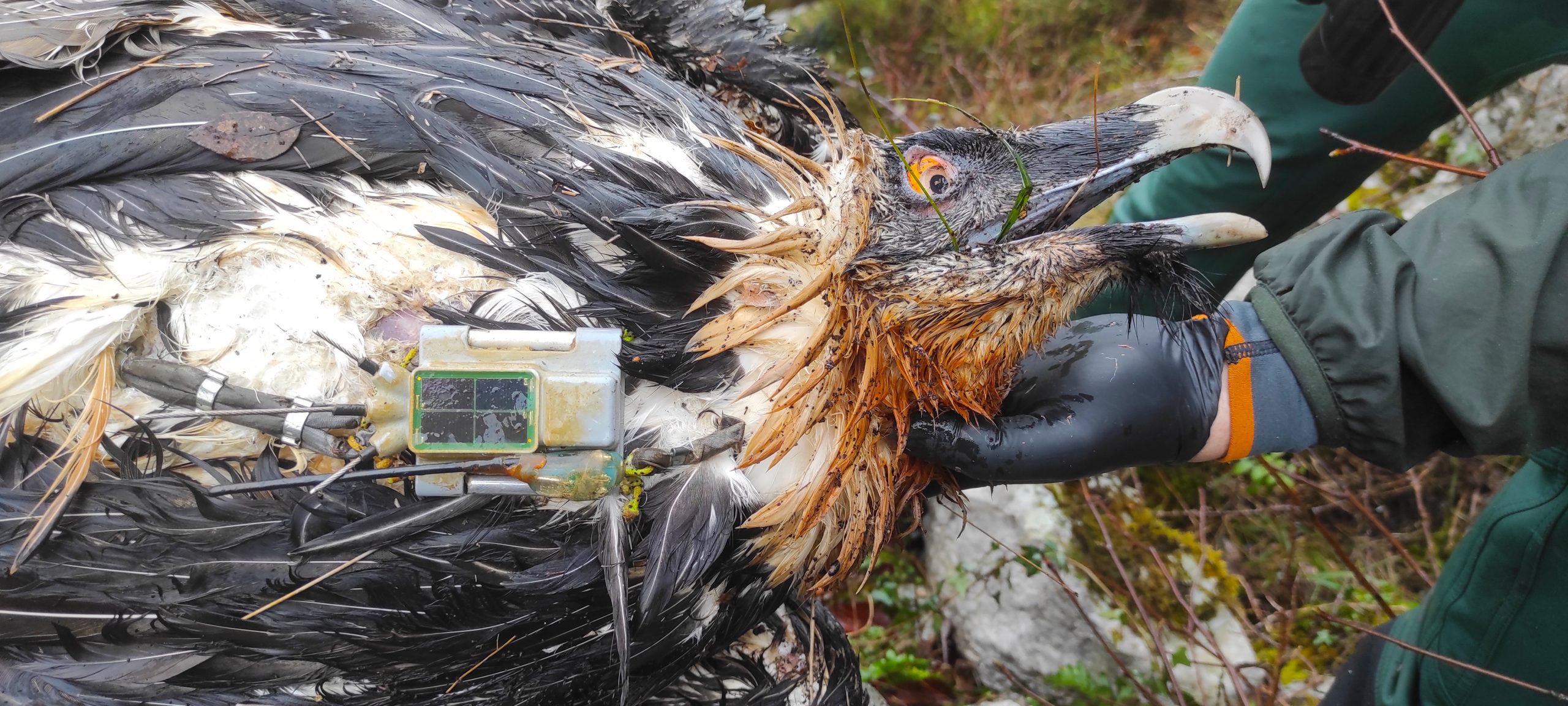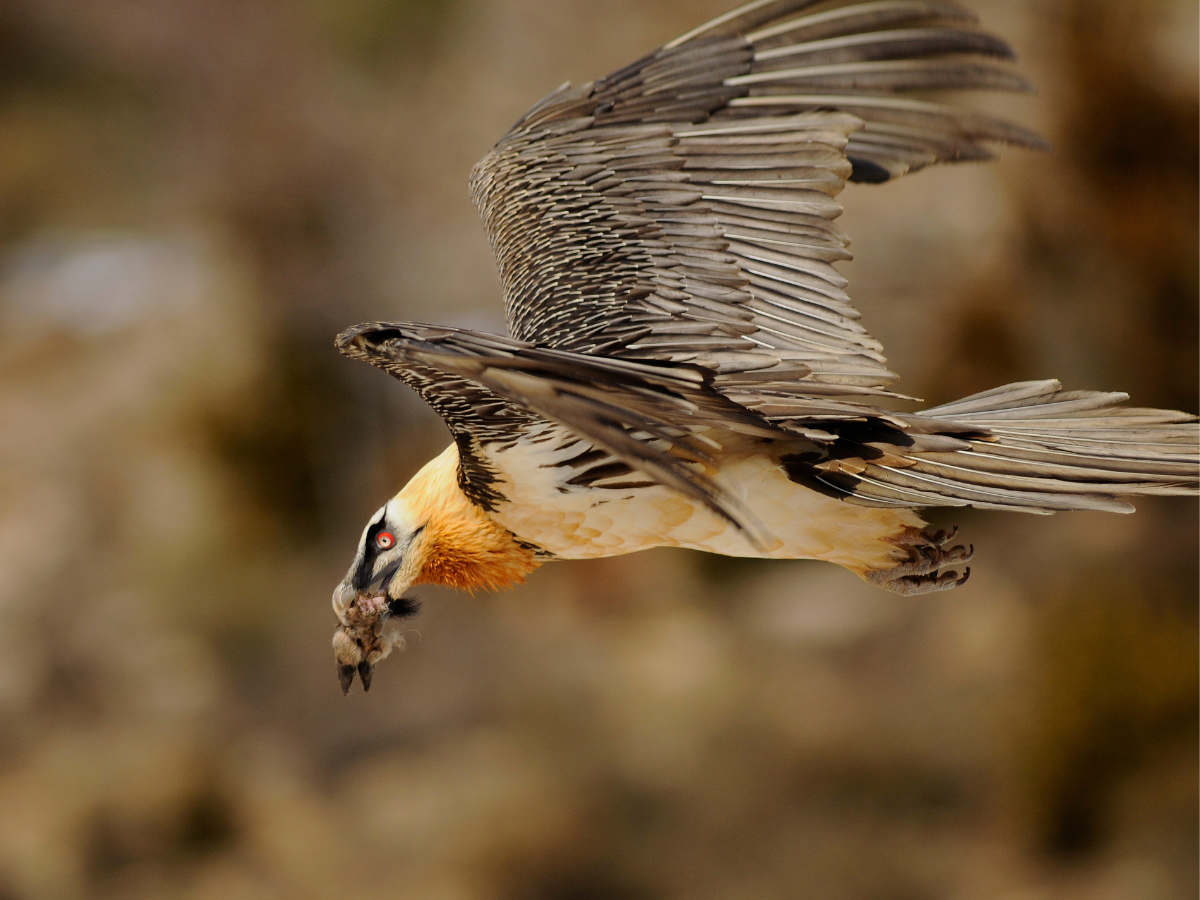As the LIFE Gyp’Act project celebrates two years of action for the conservation of the Bearded Vulture (Gypeatus Barbatus) in the corridor area between the Alps and the Pyrenees, it marks a significant milestone — not just in fieldwork, but in building the foundations of environmental justice. From increasing Bearded Vulture breeding success to reducing risks from human infrastructure, the project has achieved tangible results. Yet one of the most insidious threats to vultures still lurks beyond the visible landscape: wildlife crime. This may be in the form of illegal shooting of bearded vultures, or the use of baits laced with poison to kill predators, and that in the end also kill Bearded Vultures and other scavengers.
To address this persistent challenge, LIFE Gyp’Act has partnered with a pioneering initiative — the Wildlife Crime Academy (WCA), coordinated by the Vulture Conservation Foundation (VCF). This collaboration seeks to confront the destruction of protected species through specialist training on wildlife crime investigation, cross-border cooperation, and judicial empowerment.

A growing threat demands a stronger response
Wildlife crime — including illegal poisoning, shooting, trapping, and trafficking — remains one of the leading causes of mortality for raptors in Europe. For species like the highly threatened Bearded Vulture, a single poisoning event can undo years of conservation work.
The Wildlife Crime Academy offers a structured, multidisciplinary response. By training professionals in environmental forensics, legal procedures, and inter-agency collaboration, the Academy aims to transform how biodiversity-related crimes are investigated and prosecuted.
Collaboration kicks off at the first training course in June
In June 2025, a French delegation of ten environmental crime specialists — including law enforcement officers, forensic vets, and a public prosecutor — will take part in a five-day training course in Huelva, Spain. This training is just the beginning of a three-session cycle running through 2026 that the GypAct delegation will take in.
The first session of the Wildlife Crime Academy training programme, that will be held from 9 to 13 June 2025, will bring together participants from nine countries to immerse themselves in an intensive, real-world learning experience. Under the guidance of leading European experts with decades of field and legal experience, trainees will engage in simulated crime scene investigations, analyze case studies, and exchange best practices for detecting and prosecuting crimes against protected species. This immersive and collaborative approach will lay the groundwork for a stronger, more cohesive response to environmental crime at both national and European levels.
From theory to practice: Building capacity for real-world impact
The training curriculum is designed to build core competencies in wildlife crime investigation, ranging from crime scene analysis and evidence collection to case development and judicial follow-up. It emphasises multidisciplinary collaboration, simulates real investigation scenarios, and enables knowledge-sharing between European countries.
Importantly, the programme addresses the practical barriers to wildlife crime enforcement. Many such crimes go unpunished due to a lack of expertise or procedural shortcomings. By empowering national teams with proven methods and tools, the Academy seeks to close that gap.
LIFE Gyp’Act extending from field to the courtrooms
The LIFE Gyp’Act project has always gone beyond the cliffs and aviaries. Whether it’s installing anti-collision devices on power lines, managing food availability, or tracking released birds with GPS telemetry, the project has combined hands-on conservation with long-term strategic planning. The collaboration with the WCA brings a new dimension — one that targets the root causes of vulture mortality.
By integrating advanced investigative training into its broader conservation strategy, LIFE Gyp’Act is enhancing France’s capacity to pursue wildlife criminals and deter future offences. This partnership will also support cross-border cooperation, especially vital given the migratory habits and wide-ranging territories of vultures.
A shared mission for a safer future
Behind every reintroduction success and each legal breakthrough stands a community of dedicated individuals — from researchers and NGOs to forensic scientists and prosecutors. The Wildlife Crime Academy unites them under a common cause: defending Europe’s wildlife through action, evidence, and accountability.
Together, LIFE Gyp’Act and the Wildlife Crime Academy are sending a clear message: wildlife crime is no longer invisible, and it will no longer go unanswered. This collaboration represents a bold and necessary step forward, reinforcing our shared commitment to justice, biodiversity, and the future of Europe’s vultures.

LIFE Gyp’Act is a 13M€ project, co-funded by the EU’s LIFE programme, that will run until 30 November 2028. Project partners are LPO – Ligue pour la Protection des Oiseaux as coordinator beneficiary, and the Vulture Conservation Foundation, Association Vautours en Baronnies, LPO Auvergne-Rhone-Alpes, LPO Occitanie, Sorbonne Université, ENEDIS, Centre National d’Informations Toxicologiques Vétérinaires, Parc National des Cévennes and Parc Naturel Régional du Vercors as associated beneficiaries.
Building on the success of LIFE GypConnect, the LIFE Gyp’Act project aims to further consolidate the Bearded Vulture population in the region, ensuring connectivity between the Pyrenean and Alpine populations. LIFE Gyp’Act seeks to reintroduce 60 Bearded Vultures to key areas, mitigate primary threats, and improve food availability. The project leverages decades of expertise in captive breeding and strong regional partnerships to achieve these goals. By engaging local communities and stakeholders, LIFE Gyp’Act aims to create a sustainable environment where Bearded Vultures can thrive, contributing to the overall biodiversity and ecological health of the region.
WildLIFE Crime Academy

Funded by the EU’s LIFE Programme, the Vulture Conservation Foundation, and key international partners, the Wildlife Crime Academy is a five-year initiative aimed at strengthening law enforcement, enhancing international cooperation, and building capacity to combat wildlife crime in Portugal, Slovenia, Romania, Montenegro, Morrocco, Tunisia, Egypt, North Cyprus and Georgia.
Project partners are the Vulture Conservation Foundation as the coordinating beneficiary, and the Ministry of Environment, Waters and Forests (MMEDIU), DOPPS BirdLife Slovenia, Centar za zaštitu i proučavanje ptica (CZIP), and Taskent Doga Parki (Taskent Nature Park) TNP as associated beneficiaries.
Through a series of specialized training programmes, knowledge-exchange workshops, and collaborative efforts with governmental authorities, NGOs, and forensic experts, the project seeks to improve investigation and prosecution processes for wildlife crime. By equipping enforcement agencies with the necessary skills and tools, the WildLIFE Crime Academy is taking decisive steps to protect threatened species and dismantle the networks driving illegal wildlife trafficking.



